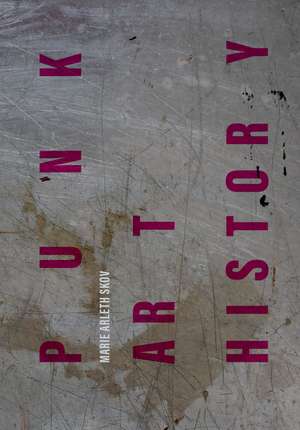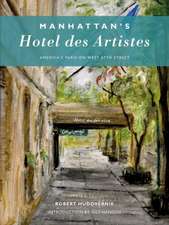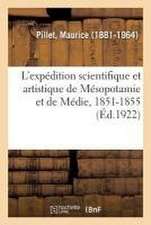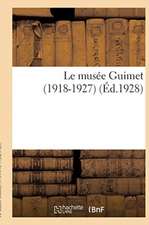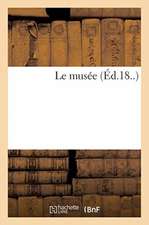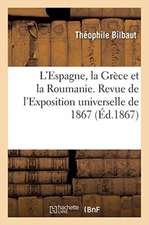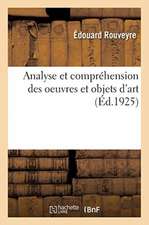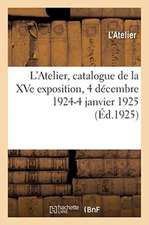Punk Art History: Artworks from the European No Future Generation: Global Punk Series
Autor Marie Arleth Skoven Limba Engleză Paperback – 22 iun 2023
The punk movement emerged during the mid-1970s, as young adults in the United Kingdom and Europe struggled to find steady employment. History was critical to the movement’s ethos. Punks rejected a narrative of supposed progress and prosperity, a rebuke evident in their visual art as well as their music. “No future,” the Sex Pistols sang, “there’s no future for you, no future for me.”
Punk Art History examines punk as an art movement, combining archival research, interviews, and art historical analysis. Marie Arleth Skov draws on personal interviews with punk art figures from London, New York, Amsterdam, Copenhagen, and Berlin, including Die Tödliche Doris (The Deadly Doris), members of Værkstedet Værst (The Workshop Called Worst), Nina Sten-Knudsen, Marc Miller, Diana Ozon, and Hugo Kaagman. The book also features email correspondence with Jon Savage, Anna Banana, and Genesis Breyer P-Orridge. Many of these artists shared materials from their private archives with Skov, who examines a wide range of media: paintings, drawings, bricolages, collages, booklets, posters, zines, installations, sculptures, Super 8 mm films, documentation of performances and happenings, body art, and street art. She also discusses scandalous and spectacular public events like the Prostitution exhibition at the Institute of Contemporary Arts in London, which spurred walkouts and political debate with its graphic content, and Die Große Untergangsshow (The Grand Downfall Show) in West Berlin, a festival of “ingenious dilettantes.” Skov’s analysis reveals that punks saw themselves as the “rear-guards,” a rejection of the notion of progress inherent to the term “avant-garde.” After all, why would a “no future” movement want to lead the way for a culture they saw as doomed?
Lively and accessible, Punk Art History will captivate students and scholars of art, design, and performance history, as well as readers with an interest in punk, music, fashion, feminism, and urban histories.
| Toate formatele și edițiile | Preț | Express |
|---|---|---|
| Paperback (1) | 200.18 lei 3-5 săpt. | +52.19 lei 6-10 zile |
| Intellect Ltd – 22 iun 2023 | 200.18 lei 3-5 săpt. | +52.19 lei 6-10 zile |
| Hardback (1) | 601.06 lei 3-5 săpt. | +28.29 lei 6-10 zile |
| Intellect Ltd – 19 mai 2023 | 601.06 lei 3-5 săpt. | +28.29 lei 6-10 zile |
Preț: 200.18 lei
Nou
Puncte Express: 300
Preț estimativ în valută:
38.31€ • 41.60$ • 32.18£
38.31€ • 41.60$ • 32.18£
Carte disponibilă
Livrare economică 02-16 aprilie
Livrare express 18-22 martie pentru 62.18 lei
Preluare comenzi: 021 569.72.76
Specificații
ISBN-13: 9781789387001
ISBN-10: 1789387000
Pagini: 350
Ilustrații: 103 color plates
Dimensiuni: 146 x 210 x 33 mm
Greutate: 0.48 kg
Editura: Intellect Ltd
Colecția Intellect Ltd
Seria Global Punk Series
ISBN-10: 1789387000
Pagini: 350
Ilustrații: 103 color plates
Dimensiuni: 146 x 210 x 33 mm
Greutate: 0.48 kg
Editura: Intellect Ltd
Colecția Intellect Ltd
Seria Global Punk Series
Notă biografică
Marie Arleth Skov is a Danish art historian, author, and curator based in Berlin.
Cuprins
Acknowledgements
1 Prelude
1.1 What are we looking at? A Punk Art Movement?
1.2 Negations, Conflicts, and Swindles: The Elusiveness of Punk
1.3 Case in Point: The First Punk Art Exhibition, 1978
1.4 Forty-five Years of Trying to Capture the Art in Punk
2 Art Origins in the Story of Punk
2.1 The Short Version: From Proto to Post
2.2 Art School vs. Hard School
2.3 Punk Precursors: 1919, 1966, 1968
2.4 DIY: The DNA of Punk
3 Pop Multiples, Camp Affirmations
3.1 Andy Warhol: "Hero of the Punks"
3.2 Hedonism as Attack
3.3 Trash and Travesty
4 The Weapons of the Underdog
4.1 Punk Propaganda
4.2 Punk Poetry
4.3 Crime as Art, Scandal as Art
5 Art with No Future?
5.1 Originality and Appropriation
5.2 Modernity in extremis
5.3 Avant-garde vs. Rear-guard
6 Children Run Riot: The Art of the Infantile
6.1 Dead End Kids
6.2 The Life of Sid Vicious: The Sad, Dead Boy
6.3 "Infancy conforms to nobody"
7 Work vs. Play
7.1 Punk's Homo Ludens
7.2 Ingenious Dilletantes
7.3 The Baby Wagner Lullaby, or: Brilliance Blackout
8 SEX
8.1 Queer Punks and Dykes in High Heels
8.2 Defiant Prostitutes, Porn Artists & Well-Dressed Whores
8.3 Sadism and Submission
8.4 Punk Feminism: Vamp Up!
9 Pain and Presence
9.1 Performances and Punches
9.2 "It hurts and looks cool!": Fetish Fashion
9.3 Real Romance?
10 Dystopian with a Twist
10.1 It's the End of the World
10.2 The Grand Downfall Show
10.3 Broken Heroes, Aces of Failure
11 The Laws of the Lawless
13 List of Interviews and Archives
12 Notes
13 Bibliography
Index
1 Prelude
1.1 What are we looking at? A Punk Art Movement?
1.2 Negations, Conflicts, and Swindles: The Elusiveness of Punk
1.3 Case in Point: The First Punk Art Exhibition, 1978
1.4 Forty-five Years of Trying to Capture the Art in Punk
2 Art Origins in the Story of Punk
2.1 The Short Version: From Proto to Post
2.2 Art School vs. Hard School
2.3 Punk Precursors: 1919, 1966, 1968
2.4 DIY: The DNA of Punk
3 Pop Multiples, Camp Affirmations
3.1 Andy Warhol: "Hero of the Punks"
3.2 Hedonism as Attack
3.3 Trash and Travesty
4 The Weapons of the Underdog
4.1 Punk Propaganda
4.2 Punk Poetry
4.3 Crime as Art, Scandal as Art
5 Art with No Future?
5.1 Originality and Appropriation
5.2 Modernity in extremis
5.3 Avant-garde vs. Rear-guard
6 Children Run Riot: The Art of the Infantile
6.1 Dead End Kids
6.2 The Life of Sid Vicious: The Sad, Dead Boy
6.3 "Infancy conforms to nobody"
7 Work vs. Play
7.1 Punk's Homo Ludens
7.2 Ingenious Dilletantes
7.3 The Baby Wagner Lullaby, or: Brilliance Blackout
8 SEX
8.1 Queer Punks and Dykes in High Heels
8.2 Defiant Prostitutes, Porn Artists & Well-Dressed Whores
8.3 Sadism and Submission
8.4 Punk Feminism: Vamp Up!
9 Pain and Presence
9.1 Performances and Punches
9.2 "It hurts and looks cool!": Fetish Fashion
9.3 Real Romance?
10 Dystopian with a Twist
10.1 It's the End of the World
10.2 The Grand Downfall Show
10.3 Broken Heroes, Aces of Failure
11 The Laws of the Lawless
13 List of Interviews and Archives
12 Notes
13 Bibliography
Index
Recenzii
"What Skov has achieved with this book is to shine the light on a much-ignored part of punk, pulling on exemplary research and an insightful vision to illuminate an important art movement. It will be a sourcebook on the subject for many years to come. It is an essential addition to any serious punk library.
Skov is a Danish art historian, author and curator based in Berlin. She works on the subjects of music, art and sexuality, with a historical focus on Surrealism and the punk movement of the 1970–80s. She is also an international affiliate of the Punk Scholars Network, and it’s clear from this book that she knows, and loves, her subject well."
Skov is a Danish art historian, author and curator based in Berlin. She works on the subjects of music, art and sexuality, with a historical focus on Surrealism and the punk movement of the 1970–80s. She is also an international affiliate of the Punk Scholars Network, and it’s clear from this book that she knows, and loves, her subject well."
"Capturing the sharp, subversive energy that fueled punk art and music, Punk Art History is a blistering, scintillating chronicle of rebellious brilliance."
"I wish this book had been available to me when I was a 16-year-old punk in 2006 who had only ever read or heard of Legs McNeil and Gillian McCain’s Please Kill Me. [...] Indeed, we’re living in an exciting time for a burgeoning wealth of punk studies. The generations that follow will be offered a rich array of research, in part due to researchers like Marie Arleth Skov and Punk Art History for, what is offered in Skov’s monograph is a different view from those typically offered in mainstream punk histories.
Skov’s writing is fresh and accessible – the density of her research could be easily overwhelming were it not for her engaging tone. The book exceeded my expectations, in that I assumed I was sitting down for a primer in punk – but was completely wrong. This is a highly academic monograph, written in a way that one might feel as if they’re seated with a close friend explaining a dense international network of ideas, and the artistic movements of which that network pays homage or may have in part, been bred from. Skov offers the research to her reader in delightful bite-sized, but well-written chapter sections.
This book is a service to the movement and belongs among the shelves of any self-purported full-time (or, even, to quote Television Personalities, ‘part-time’) punks."
Skov’s writing is fresh and accessible – the density of her research could be easily overwhelming were it not for her engaging tone. The book exceeded my expectations, in that I assumed I was sitting down for a primer in punk – but was completely wrong. This is a highly academic monograph, written in a way that one might feel as if they’re seated with a close friend explaining a dense international network of ideas, and the artistic movements of which that network pays homage or may have in part, been bred from. Skov offers the research to her reader in delightful bite-sized, but well-written chapter sections.
This book is a service to the movement and belongs among the shelves of any self-purported full-time (or, even, to quote Television Personalities, ‘part-time’) punks."
